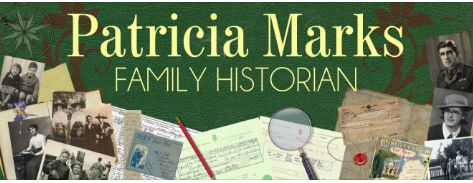
Finding those Gems in Family History Records
Share
Can't find an ancestor in the records? Getting stuck with family history is not unusual; if that weren't the case, we'd all have complete family trees in months rather than years.
I've had lots of experience of getting stuck in research, but then being able to think around the issue and formulate a new plan which reveals a vital piece of information. Developing an understanding of why particular records were created in the first place is part of that thinking. Most of the records we, as family historians consult, were created over one, two, or more, hundred years ago.
They were never designed to enable us, today, to research our family history, so we have to use detection skills to track down those vital bits of information.
One way to develop an understanding of the available records is to browse through the record set catalogues of the major subscription websites such as Ancestry and Find My Past. You will find some excellent descriptions of records which place them in a particular context. I will admit to spending many an hour doing just this; a bit sad, I know, but doing so has taught me an awful lot.
However, sometimes we need to use other strategies to achieve results, especially for records that are not in the public domain. One useful strategy, if you can call it that, is to use a bit of common sense!
I can illustrate this from my own family history. My mother died when I was just coming into adulthood. Her background was always a bit of a mystery and was never talked about. Like many families at the time, the past wasn't discussed. The parents of many people of my age had come through WW2 and preferred to look forward rather than back to the past. Of course, that doesn't apply to all families, but that was my experience.
What became increasingly clear was that my mother experienced poor mental health and many of my childhood memories are around crisis points. Mum died when she was 46 by which time I had married and busy getting on with life. But, as happens with many people, curiosity increased as I approached middle age and it soon became my mission to learn about Mum's background.
The one thing I did know was that she had been brought up in Catholic care. After finding out the basics through birth, marriage and death certificates, I set out to try and find out exactly where she was brought up. I wrote to different Catholic organisations in different parts of the country, but to no avail. I just wasn't getting anywhere and had no alternative but to put it to one side.
In the meantime, I continued with all my other channels of research that were ongoing at the time. I decided to apply for Mum's army service record as she had enlisted with the ATS in the latter part of the war. I was keen to secure all documentation to be included in the family archive.
The service record duly arrived and as soon as I opened up the documents, there it was in the section for permanent postal address; Maryvale Convent, Old Oscott, Great Barr, Birmingham. As Mum was 19 when she enlisted, I had made the assumption that she would have already moved on from the care environment. In addition, in the section for next of kin was written, Guardian, Mother Superior and the addess of the Maryvale Convent. As you can imagine, I was over the moon and from that information I was eventually able to flesh out some of Mum's story.
I have never fallen into the trap of automatically scapegoating the Catholic care system and blaming it for Mum's later mental health problems. I did find out some stuff which suggests it was possibly something else. That I will keep for another blog . I was educated in a Convent and I loved it, although it was in a different context. I got a great education and the desire for learning that was ignited there has stayed with me.
When I reflected on this episode, one of my learnings was to never make assumptions. Another was to think more carefully about the conventions in place at the time a record was made. In 1944, the age of majority was still 21, so anybody under that age would need a parent or guardian to be responsible. I couldn't believe I'd forgotten that!
But in genealogy, as in life, it is often our mistakes that present us with the most opportunities for learning.
